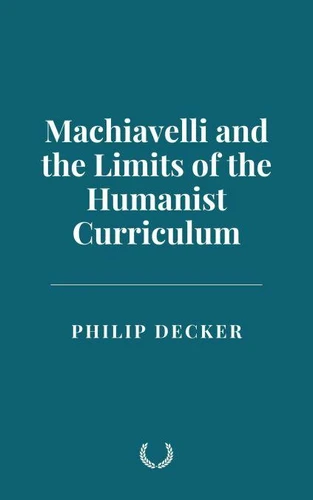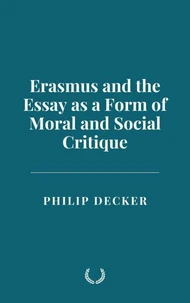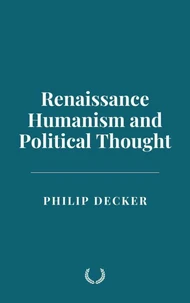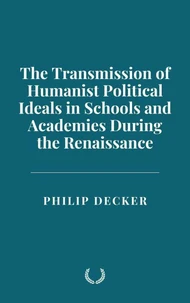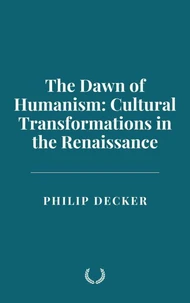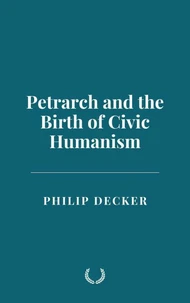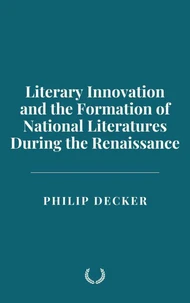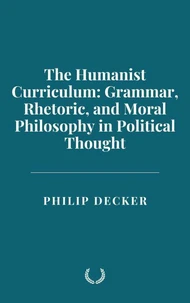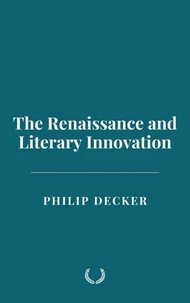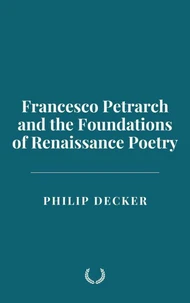Machiavelli and the Limits of the Humanist Curriculum
Par :Formats :
Disponible dans votre compte client Decitre ou Furet du Nord dès validation de votre commande. Le format ePub est :
- Compatible avec une lecture sur My Vivlio (smartphone, tablette, ordinateur)
- Compatible avec une lecture sur liseuses Vivlio
- Pour les liseuses autres que Vivlio, vous devez utiliser le logiciel Adobe Digital Edition. Non compatible avec la lecture sur les liseuses Kindle, Remarkable et Sony
 , qui est-ce ?
, qui est-ce ?Notre partenaire de plateforme de lecture numérique où vous retrouverez l'ensemble de vos ebooks gratuitement
Pour en savoir plus sur nos ebooks, consultez notre aide en ligne ici
- FormatePub
- ISBN8231034604
- EAN9798231034604
- Date de parution22/06/2025
- Protection num.pas de protection
- Infos supplémentairesepub
- ÉditeurWalzone Press
Résumé
"Machiavelli and the Limits of the Humanist Curriculum" offers a groundbreaking exploration of one of history's most enigmatic political thinkers-Niccolò Machiavelli-and his complex relationship with Renaissance humanism. This meticulously researched and richly detailed volume unravels how Machiavelli, educated in the classical traditions of virtue, eloquence, and moral philosophy, both inherited and profoundly challenged the humanist ideals that shaped early modern political thought.
Through in-depth analysis of Machiavelli's major works, including The Prince and Discourses on Livy, the book reveals the revolutionary tension between the optimistic humanist vision of ethical leadership and Machiavelli's stark political realism grounded in power, fortune, and survival. It examines Machiavelli's redefinition of virtù, his pragmatic view of rhetoric, and his pioneering use of history as a tool not merely for moral instruction but for strategic political insight.
Set against the volatile backdrop of Renaissance Italy's fractured city-states, this book illuminates how Machiavelli's ideas transcended his era to lay the foundations of modern political science, realism, and secular political ethics. It also explores the enduring relevance of Machiavelli's critique in today's political education and leadership-where the balance between idealism and pragmatism remains as urgent as ever.
Accessible yet scholarly, Machiavelli and the Limits of the Humanist Curriculum is essential reading for students, academics, and anyone fascinated by the origins of political power, the complexities of governance, and the timeless challenge of reconciling morality with political necessity.
Through in-depth analysis of Machiavelli's major works, including The Prince and Discourses on Livy, the book reveals the revolutionary tension between the optimistic humanist vision of ethical leadership and Machiavelli's stark political realism grounded in power, fortune, and survival. It examines Machiavelli's redefinition of virtù, his pragmatic view of rhetoric, and his pioneering use of history as a tool not merely for moral instruction but for strategic political insight.
Set against the volatile backdrop of Renaissance Italy's fractured city-states, this book illuminates how Machiavelli's ideas transcended his era to lay the foundations of modern political science, realism, and secular political ethics. It also explores the enduring relevance of Machiavelli's critique in today's political education and leadership-where the balance between idealism and pragmatism remains as urgent as ever.
Accessible yet scholarly, Machiavelli and the Limits of the Humanist Curriculum is essential reading for students, academics, and anyone fascinated by the origins of political power, the complexities of governance, and the timeless challenge of reconciling morality with political necessity.
"Machiavelli and the Limits of the Humanist Curriculum" offers a groundbreaking exploration of one of history's most enigmatic political thinkers-Niccolò Machiavelli-and his complex relationship with Renaissance humanism. This meticulously researched and richly detailed volume unravels how Machiavelli, educated in the classical traditions of virtue, eloquence, and moral philosophy, both inherited and profoundly challenged the humanist ideals that shaped early modern political thought.
Through in-depth analysis of Machiavelli's major works, including The Prince and Discourses on Livy, the book reveals the revolutionary tension between the optimistic humanist vision of ethical leadership and Machiavelli's stark political realism grounded in power, fortune, and survival. It examines Machiavelli's redefinition of virtù, his pragmatic view of rhetoric, and his pioneering use of history as a tool not merely for moral instruction but for strategic political insight.
Set against the volatile backdrop of Renaissance Italy's fractured city-states, this book illuminates how Machiavelli's ideas transcended his era to lay the foundations of modern political science, realism, and secular political ethics. It also explores the enduring relevance of Machiavelli's critique in today's political education and leadership-where the balance between idealism and pragmatism remains as urgent as ever.
Accessible yet scholarly, Machiavelli and the Limits of the Humanist Curriculum is essential reading for students, academics, and anyone fascinated by the origins of political power, the complexities of governance, and the timeless challenge of reconciling morality with political necessity.
Through in-depth analysis of Machiavelli's major works, including The Prince and Discourses on Livy, the book reveals the revolutionary tension between the optimistic humanist vision of ethical leadership and Machiavelli's stark political realism grounded in power, fortune, and survival. It examines Machiavelli's redefinition of virtù, his pragmatic view of rhetoric, and his pioneering use of history as a tool not merely for moral instruction but for strategic political insight.
Set against the volatile backdrop of Renaissance Italy's fractured city-states, this book illuminates how Machiavelli's ideas transcended his era to lay the foundations of modern political science, realism, and secular political ethics. It also explores the enduring relevance of Machiavelli's critique in today's political education and leadership-where the balance between idealism and pragmatism remains as urgent as ever.
Accessible yet scholarly, Machiavelli and the Limits of the Humanist Curriculum is essential reading for students, academics, and anyone fascinated by the origins of political power, the complexities of governance, and the timeless challenge of reconciling morality with political necessity.

